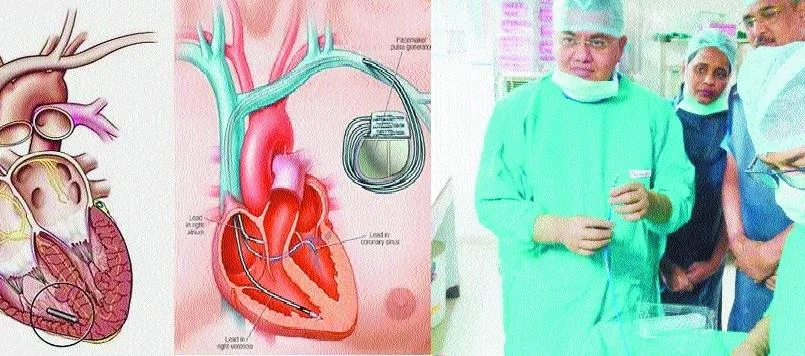Parents of a 27-year old man from Virar, who suffered a brain haemorrhage, donated his vital organs to four critically ill patients.Dr Nitin Tiwari conducts procedure that is done first time in Central India, Senior Cardiologist in a Heart Hospital at Nagpur performed first of its kind procedure of Central India where he implanted a leadless pacemaker in a senior citizen from Madhya Pradesh (MP). This procedure was a life saver for the patient who had run out of options to survive. The procedure is an added achievement to the long list of firsts in Central India by Wockhardt team.
An 82-year-old patient had been in heart failure for several months and he required a Pacemaker to keep his heart beating. As the efforts of cardiologist at MP did not yield any result, but developed infection in chest.
The patient’s relatives came to Wockhardt hospital and consulted Dr Nitin Tiwari, Senior Consultant – Interventional Cardiologist. After thorough examination, history taking and careful consideration, the patient was suggested for a leadless pacemaker (MICRA). In this instance, MICRA being a leadless pacemaker, the need for skin pocket was not there and hence the chances of pocket infection are negligible, pointed out Dr Nitin Tiwari.
The miniaturised leadless pacemaker ‘MICRA’ is the world’s smallest pacemaker and is delivered directly to the heart. It is also 93% smaller than conventional pacemakers, has a mass of 1.75 gm and volume of 0.8 cc.
The traditional method of pacemaker impant is done usually by creating a pocket near chest and placing a small metal container housing a battery and the electrical circuitry that regulates the rate of electrical pulses sent to your heart. One to three flexible, insulated wires are each placed in a chamber, or chambers, of your heart and deliver the electrical pulses to adjust your heart rate.
Dr Tiwari pointed out, “With conventional pacemakers the risk of pocket infection varies from 1.6 to 2.2 per cent. Usually the risk is more in the second time implantation. The chances of infection are more in diabetics, young males, multiple lead pacemakers and immune-compromised people.”
Dr Tiwari also advised patients to undertake pacemaker implantation preferably at a high volume centre so as to decrease the chances of infection. K Sujatha, Centre Head added, “Wockhardt Heart Hospitals has completed 15 years in Nagpur during that time it has performed more than 25,000 procedures and has seen many one of its kind procedures and surgeries. We have Cardiac specialist who have more than 20 years of experience in this field. Dr Nitin and team did excellent work.”




